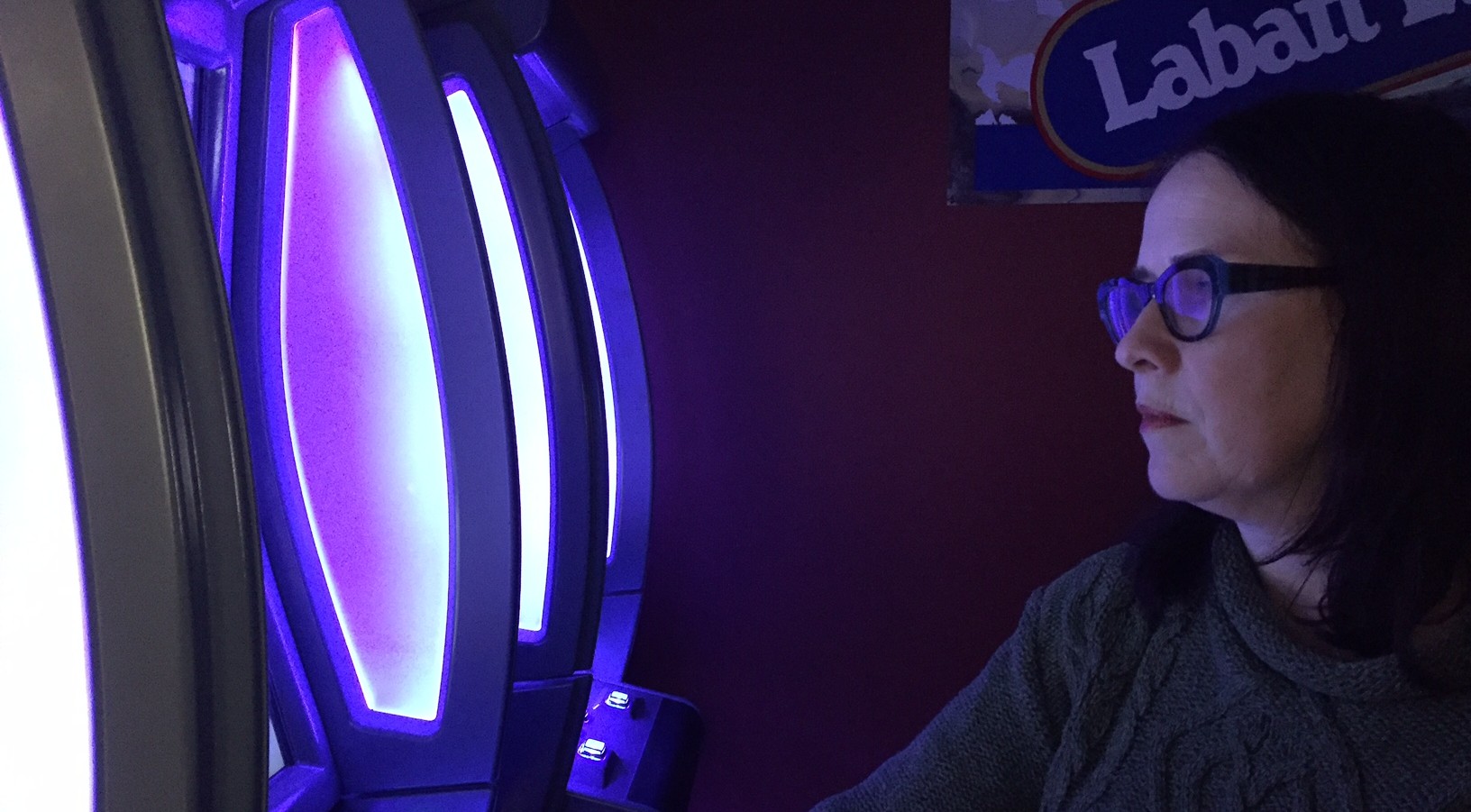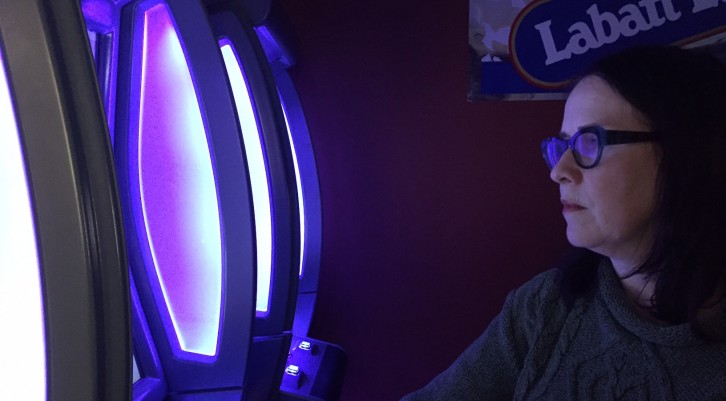Addictions
Gamblers using hard drugs wanted for Dal study
A research team at Dalhousie is looking for test takers to see if gambling affects a desire for hard drugs.

caption
Dr. Sherry Stewart faces a VLT at the Gambling Lab, Dalhousie University.
caption
Dr. Sherry Stewart at a VLT at Dalhousie University’s Gambling Lab.Dr. Sherry Stewart has been trying hard to find qualified test takers for her study.
Their qualifications are unique and finding them is not easy. The subjects must be using hard drugs regularly and must also have gambled with slot machines in the past, without exhibiting a gambling problem.
Stewart, a professor of psychology/psychiatry and neuroscience at Dalhousie University, started the study last March.
”We’re looking for people who have regularly used stimulants like cocaine and amphetamines for the last six months or more,” Stewart says. “We’re seeing whether, when they’re coming to the lab, and when they gamble — does that increase their desire for stimulants?”
To measure the reaction to gambling in the test, Stewart says she has to avoid problem gamblers and those who have never gambled before.
Beginning 10 months ago, the team posted advertisements on Kijiji several times, as well as on printed posters. Since no one has qualified for the test, Stewart recently eased the qualification.
Cross-priming
At the Dalhousie Gambling Lab, the test takers will play a VLT in a room that looks like a real bar in Halifax. The team will give them money to play and will also pay $40 for the two-and-a-half-hour test. To simulate the feeling of gambling, the team allows test takers to keep the money they win. They will also receive a variety of computerized tests.

caption
The test takers will experience a real game on a VLT.The key phenomenon in the study is called “cross-priming.” Generally, psychiatrists use this term to describe how using one sort of drug motivates the person to use another drug.
Eleven years ago, at the University of Toronto, research by Dr. Martin Zack and Dr. Constantine Poulos suggested that amphetamines motivated some problem gamblers to gamble more. Stewart is focusing on the opposite. The test will begin in collaboration with the University of Calgary which also has a gambling lab.
The team needs around 25 to 50 hard drug users to be qualified for the test.
“Fifteen people have contacted us. But some of them were not qualified, the others haven’t replied since I contacted them,” says Pam Collins, manager of the Dalhousie Gambling Lab.
If the team can gather the proper number of test results, the study could reveal the increased risk posed by gambling on hard drug addiction.
Stewart says the team won’t contact organizations dealing with drug addiction in Halifax because the test may possibly risk their patient’s rehabilitation process. Their best hope is to raise awareness to the test for recruitment within HRM.
“We are really trying hard to get people,” says Stewart. “We haven’t given up yet.”
About the author
Lisa Takagi
Lisa Takagi is a journalist and artist living in Halifax. Takagi has covered culture and cultural issues in Nova Scotia since she moved from...
